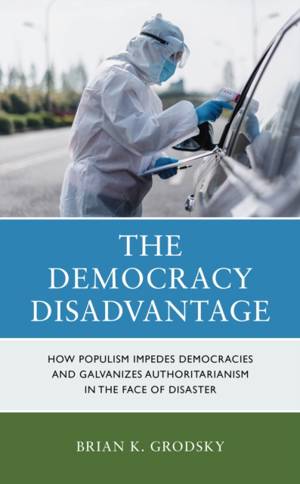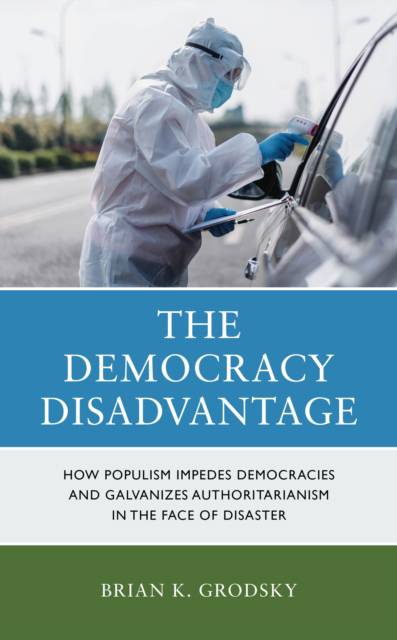
- Afhalen na 1 uur in een winkel met voorraad
- Gratis thuislevering in België vanaf € 30
- Ruim aanbod met 7 miljoen producten
- Afhalen na 1 uur in een winkel met voorraad
- Gratis thuislevering in België vanaf € 30
- Ruim aanbod met 7 miljoen producten
Zoeken
The Democracy Disadvantage
How Populism Impedes Democracies and Galvanizes Authoritarianism in the Face of Disaster
Brian K Grodsky
Paperback | Engels
€ 61,45
+ 122 punten
Uitvoering
Omschrijving
Populists are conventionally maligned as impediments to effective policymaking. They tend to undermine state institutions, exercise personalistic rule, and offer simplistic solutions to complex societal problems. But is populism always a hindrance to good governance? In this book, Brian Grodsky argues that the interplay between populism and regime type can upend expected levels of political responsiveness based on regime considerations alone. The result can be a reversal of the so-called "democratic advantage," according to which public accountability in democratic regimes drives action beyond what is typically expected under authoritarianism. Grodsky explores the government policy response to the COVID-19 pandemic in three populist states: the United States (a democracy); China (a non-democracy); and Russia (a hybrid regime). This insightful, exploratory analysis is essential reading for students and scholars of comparative politics, populism, and disaster management.
Specificaties
Betrokkenen
- Auteur(s):
- Uitgeverij:
Inhoud
- Aantal bladzijden:
- 302
- Taal:
- Engels
Eigenschappen
- Productcode (EAN):
- 9781538192115
- Verschijningsdatum:
- 31/01/2024
- Uitvoering:
- Paperback
- Formaat:
- Trade paperback (VS)
- Afmetingen:
- 152 mm x 229 mm
- Gewicht:
- 444 g

Alleen bij Standaard Boekhandel
+ 122 punten op je klantenkaart van Standaard Boekhandel
Beoordelingen
We publiceren alleen reviews die voldoen aan de voorwaarden voor reviews. Bekijk onze voorwaarden voor reviews.











